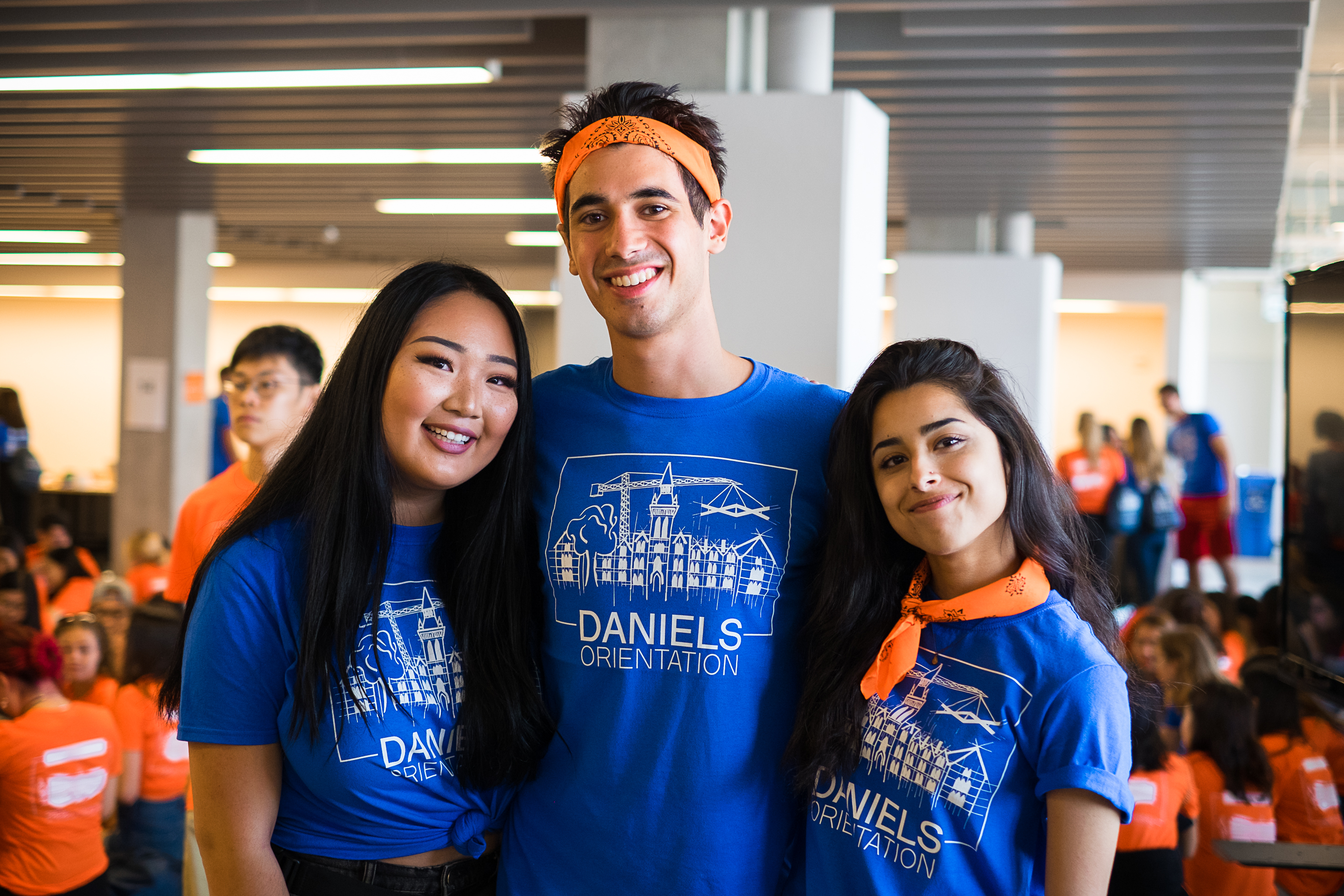
18.09.17 - Five things about the Daniels Faculty Mentorship Program
The Daniels Faculty offers many resources for students, one of them being the Mentorship Program, which pairs first and second year students with those in their third or fourth year who assist them in their transition to university. With the first day of school around the corner, we talked to Sky Ece Ulusoy, one of two Mentorship Program Coordinators, about the value of becoming involved as a mentor or mentee.
1. It can make a big difference to a student’s experience of life at university.
University of Toronto is a big place, and there are many resources to discover. It can help to have someone guiding you through the experience.
“When I first came to U of T, I didn’t know where to go, what to do, where my classes were,” says Sky Ece Ulusoy. “The setting is so different from high school that it’s hard to even know how to take notes in class. I was lucky enough that I had a friend that helped me through, as a pseudo-mentor, but not everyone has that. Having someone with you, who has been through the process, is very useful. Vice-versa, being a mentor last year taught me new things as well. Having knowledge of a university, being able to pass it on, and see it help change a mentee is a very valuable experience.”
2. There are so many fun events, academic and otherwise, to participate in.
The Mentorship Program offers both academic and fun, social events. This year, they are planning a “coffee with the profs,” where participants will have an informal meeting with some of the professors in the faculty; an art gallery “hop,” similar to a bar hop but with galleries in Toronto; and an ice-skating event in the winter that all the mentors and mentees can attend. The program coordinators work to make the events valuable to both the mentors and mentees.
3. Mentees are matched with mentors based on their academic and extracurricular interests.
The Program aims to match mentees with mentors who are doing similar degrees. It also looks at extracurricular activities that the mentors are involved in, if they’re an international student, a commuting student, and so on. A good match allows the mentor and mentee to better relate to each other.
4. Mentors and mentees receive training.
An information session is organized for mentees to help them better understand how to approach their mentor-mentee relationship, while mentors receive Equity Training and Mentorship Foundations Training. In addition, all students receive continuous support via the Office of the Registrar and Student Services Office and their advising staff. This training is very important because mentors need to learn how to approach students and what language to use, especially if someone is struggling or upset.
5. The program will show up on a student’s Co-Curricular Record (CCR).
CCR records your extracurricular activities so you have official documentation of your involvement in the student life of the university. Students can show these university-recognized activities on their CCR to potential employers when they’re applying for jobs.
For more information, visit www.daniels.utoronto.ca/mentorship-leadership-opportunities

